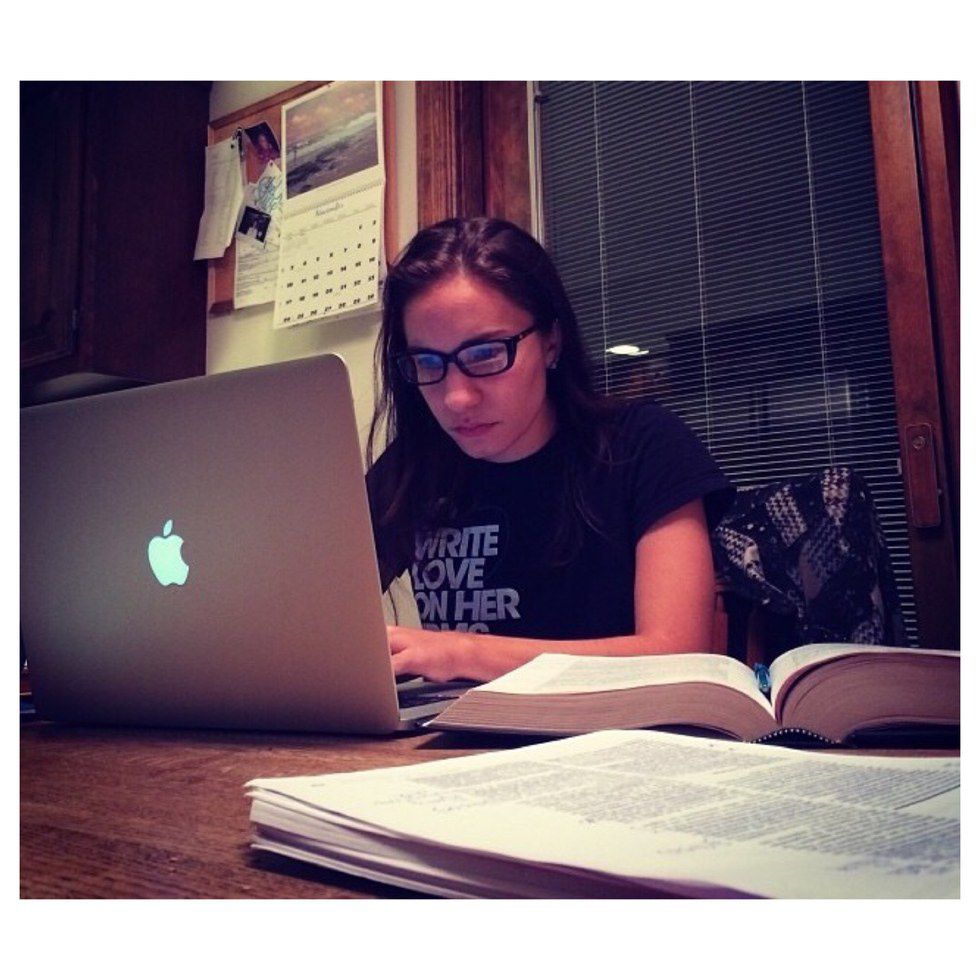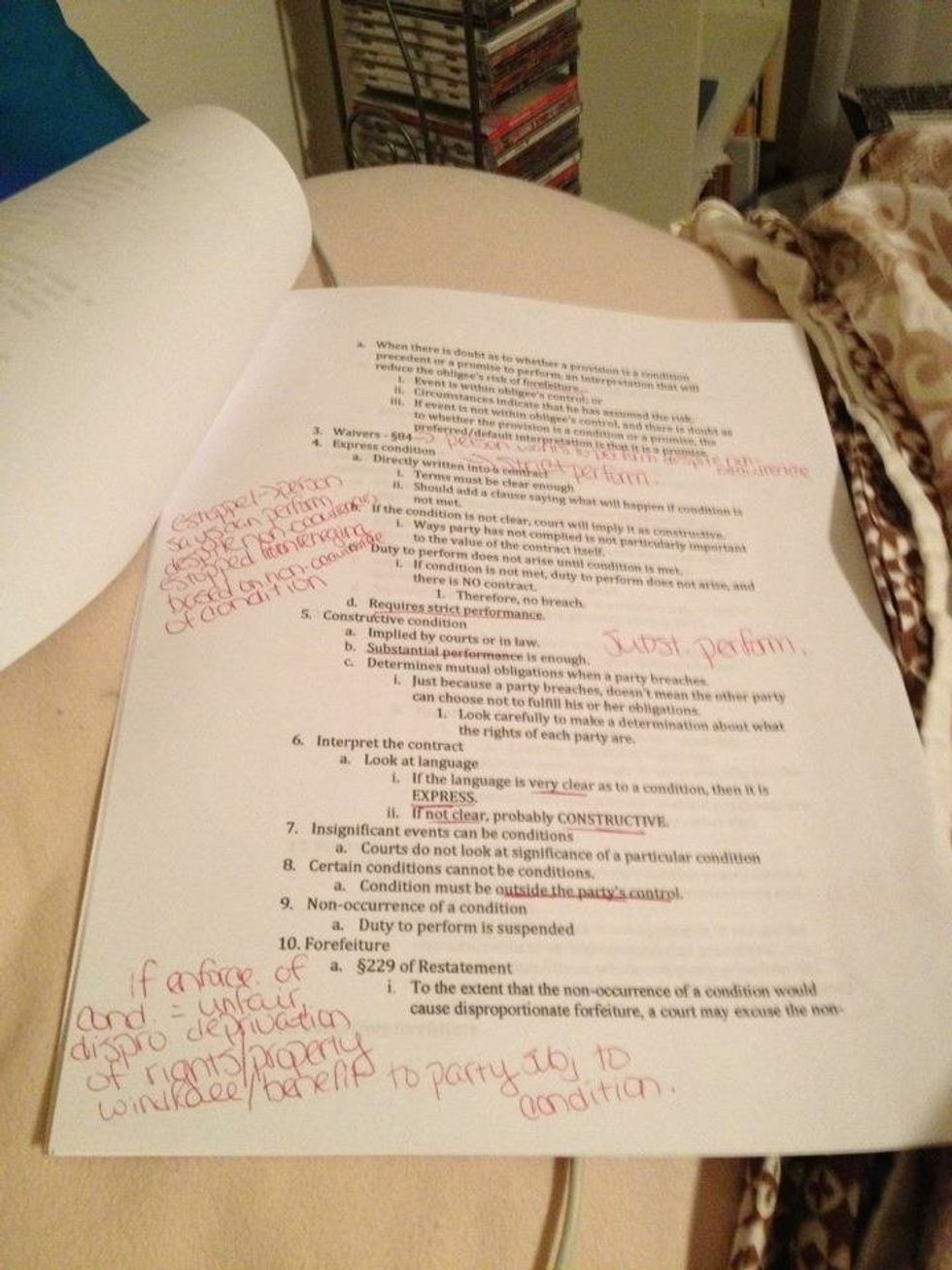
Many colleges and universities require a student to declare his or her major by the end of his or her freshman year. At 18 or 19 years old, we are expected to know what we want to focus on education-wise for the next three years of our lives.
Though we can change our major, it does make it more difficult to graduate on time, and who wants to spend extra time in school taking even more classes so we can get a degree in our new major? Sometimes it is easier to stick with what we originally chose - despite disliking it - because we have already completed a lot of the requirements and switching would just make things more complicated.
Even worse, once you have picked a major and completed it, you tend to be limited to certain jobs once you graduate. A communications major is usually limited to communications-related jobs; a business major is generally limited to business jobs.
If you have chosen a major that is not necessarily able to be used in the real world (like the sciences, unless you want to be a teacher), you might be forced to consider graduate school.
Even if you do choose a major where you can have a career upon graduation, you might still consider graduate school just to broaden your options (Note: I was a journalism major and attended law school, just as an example; Another note: Graduate school does not guarantee you will have an easier time finding a job. The market is bad right now, and even a Masters or PhD degree will not guarantee you will find a job or have a career right out of school).
At 18 years old, we have so much to learn and experience when it comes to all aspects of life. Yet despite not knowing a lot about life, we are expected to know what we want to do career-wise for the rest of our journey here on Earth.
We are expected to know what being an economist entails or what being a teacher entails or what being an occupational therapist entails. Yes, we can participate in internships to get an idea but oftentimes we are limited in what we can do since we are students.
An internship will not fully prepare us for a job in our chosen field because students are usually limited in what they can do as an intern. As a result, we may have "worked" in our chosen field, but our "work" may have been limited to things such as filing, buying coffee, and other menial tasks that really do not make us aware of our chosen career's duties. Because of this, graduating and entering the workforce is a huge, sometimes painful, wake-up call.
Because universities and colleges are so adamant about having their students choose a major before entering their sophomore year, a freshman may also feel rushed into choosing something just for the heck of it. The student will probably have no idea how unhappy he or she might be upon graduation or even while taking the classes needed to fulfill the major's requirements.
I certainly do not claim to have an answer to this problem. I just know the problem exists. I have witnessed it firsthand with many of my friends, and I myself have experienced it. When I chose journalism as my major, little did I know that most of the time, journalists had to have many freelance jobs in order to earn a decent living; little did I know that a well-paying, full-time journalism job was extremely hard to obtain.
To rub salt in the wound, I applied to law school, was accepted and immediately paid the deposit needed to secure my seat for the class of 2014. Yes, I wanted to be a lawyer - at least I thought I did - but I also felt like the classes I took in university, as well as the activities in which I participated (mostly the school newspaper) would not be transferable to other career paths. But I did know that a strong writing background was perfect for being a lawyer.
Just a little hint to everyone while I am on the subject: Make sure you have experienced some type of serious immersion into being a lawyer before attending law school. Work at a law firm or in the legal entity you would like to work upon passing the bar so you know completely what the job involves. In no way does law school prepare you for being a lawyer. Unfortunately, now I am faced with an undergraduate and an upper level degree and two skill sets that severely limit my career options.
There are many things we cannot do as 18 year olds. Renting a car, drinking or buying alcohol or buying cigarettes (in most states) are just a few things 18 year olds cannot do. Yet somehow, we are expected to have the knowledge to choose what we want to do as a career for the rest of our lives.
It sounds a little backwards to me. And, honestly, I think it sets a lot of us up for a life of disappointment and potential failure.





















